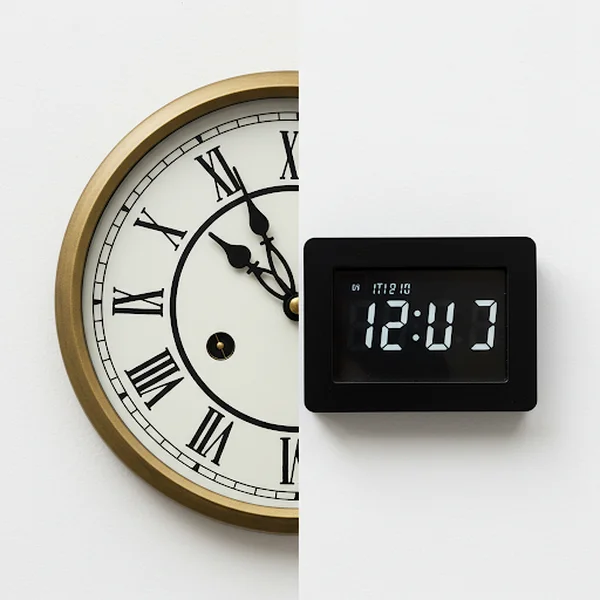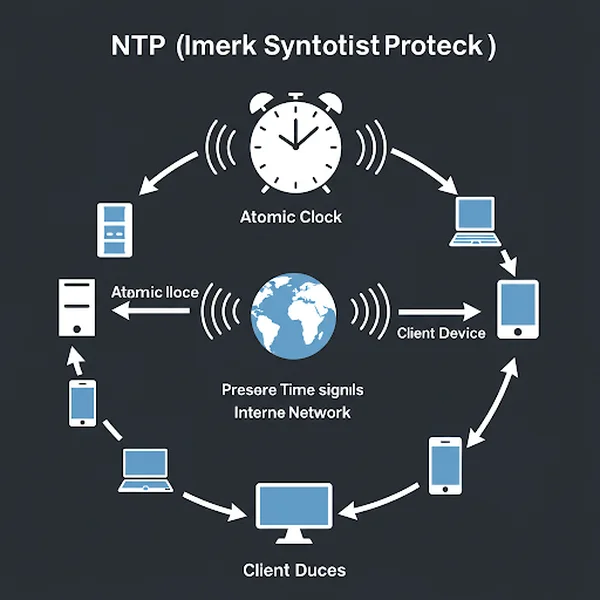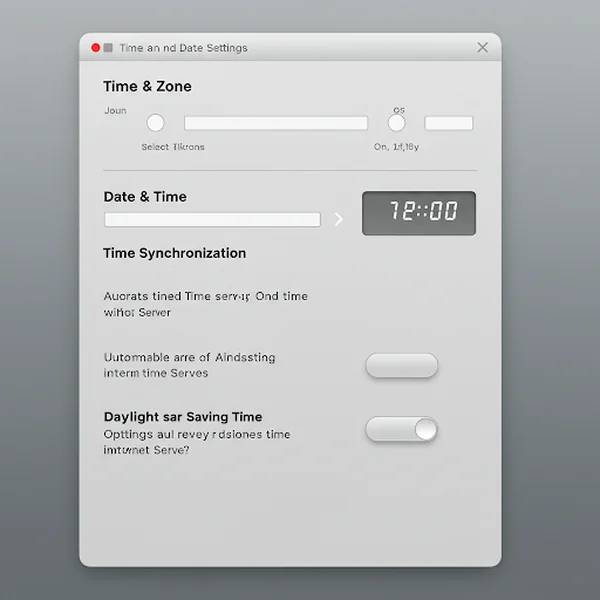The Accuracy of Online Digital Clocks: How Synchronized is Your Time?
Are you relying on an online clock to keep you on schedule? But what is the most accurate online clock? In this digital age, precision is key, and understanding the factors that influence the accurate time displayed on your screen is crucial. Click here to experience a reliable digital clock that prioritizes accuracy.
Understanding the Basics: What is a Digital Clock and How Does It Work?
Before diving into the nuances of accuracy, let's establish a foundation. A digital clock displays time numerically, offering a clear and concise alternative to its analog counterpart. But have you ever wondered about the key components that make a digital clock tick?
Digital Clocks vs. Analog Clocks: A Quick Comparison
While both serve the same purpose – telling time – they achieve it in fundamentally different ways. Analog clocks use hands to indicate the hour, minute, and sometimes second, requiring the user to interpret their positions. Digital clocks, on the other hand, present the time as a direct numerical readout, eliminating ambiguity.

The Key Components of a Digital Clock
At its core, a digital clock comprises:
- Oscillator: Provides a stable frequency, acting as the heartbeat of the clock.
- Counter: Accumulates the pulses from the oscillator and divides them to measure seconds, minutes, and hours.
- Display: Presents the time numerically, often using LED or LCD technology.
- Power Source: Supplies the energy required for the clock to function, be it a battery or a connection to the electrical grid.
The Challenge of Accuracy: Why Online Digital Clocks Aren't Always Perfect
While convenient, online digital clocks are not immune to inaccuracies. Several factors can contribute to discrepancies between the time displayed and the accurate time. Why aren't online digital clocks always perfect?
Latency and Network Delays: The Internet's Impact on Time
The internet, while revolutionary, introduces latency and network delays. Data, including time signals, takes time to travel across networks, which can lead to delays and inaccuracies in online clocks.
Software Glitches and System Errors
Like any software, online digital clocks are susceptible to glitches and errors. These can stem from programming bugs, operating system issues, or even browser-related problems. System errors can disrupt the timekeeping process, leading to inaccurate displays.
Time Synchronization Protocols: How Online Clocks Strive for Accuracy
Despite the challenges, online clocks employ sophisticated techniques to achieve time synchronization. These protocols help minimize inaccuracies and provide users with a relatively accurate time.

The Role of NTP (Network Time Protocol)
The Network Time Protocol (NTP) is a cornerstone of online timekeeping. NTP allows computers to synchronize their clocks over a network, referencing a time server that adheres to Coordinated Universal Time (UTC).
How Atomic Clocks Contribute to Global Timekeeping
Atomic clocks are the gold standard for accuracy. They rely on the consistent vibrations of atoms to measure time with incredible precision. Many time servers used by NTP are synchronized to atomic clocks, ensuring the accurate time is distributed globally.
Factors Affecting Accuracy: From Your Device to the Server
The accuracy of an online digital clock isn't solely determined by the time server. Several other elements play a role, including your device and internet connection. Which clock has the highest accuracy?
Your Computer's Internal Clock: Is It Reliable?
Your computer has its own internal clock, but its reliability can vary. These clocks can drift over time due to temperature changes and component aging.
The Importance of a Stable Internet Connection
A stable and fast internet connection is crucial for maintaining time synchronization. A poor connection can lead to dropped packets and delays, hindering the ability of your online clock to stay in sync.
Server Load and Time Source Quality
The server load on the time server and the time source quality can also influence the accuracy. A heavily loaded server may struggle to respond quickly to requests, while a lower-quality time source may introduce inaccuracies.
How to Improve Your Online Digital Clock's Accuracy: Practical Tips
While you can't control all the factors influencing accuracy, there are steps you can take to improve the time synchronization of your online digital clock:

Syncing Your Device with a Reliable Time Server
Ensure your device is configured to sync with a reliable time server. In most operating systems, you can specify the NTP server used for time synchronization.
Using a Dedicated Time Synchronization Software
Consider using dedicated time synchronization software. These tools can provide more frequent and accurate time updates than your operating system's built-in capabilities.
Checking and Updating Your System's Time Settings
Regularly check and update your system's time settings. Make sure your time zone is correct and that your device is set to automatically adjust for daylight saving time.
The Pursuit of Accurate Time in a Connected World
The quest for accurate time in our interconnected world is an ongoing pursuit. While online digital clocks may not always be perfect, they strive for time synchronization through protocols like NTP and rely on the precision of atomic clocks. By understanding the factors that influence accuracy and taking proactive steps to improve timekeeping on your devices, you can ensure your online digital clock is as synchronized as possible. Explore our website, digital clock, to discover a customizable digital clock experience.
Ensuring Your Online Digital Clock is Accurate
- Time synchronization is key to online clock accuracy.
- NTP plays a crucial role in maintaining time synchronization.
- Your device, internet connection, and time server all influence accuracy.
What's Next? The Future of Time Synchronization
The future of time synchronization will likely involve even more precise atomic clocks, improved NTP protocols, and potentially the use of blockchain technology to verify accurate time.
Frequently Asked Questions About Online Digital Clock Accuracy
What is the most accurate clock source? The most accurate clock source is typically an atomic clock.
How accurate is a computer's clock? A computer's clock accuracy can vary, but it's generally accurate to within a few seconds per day if properly synchronized.
How often should I synchronize my computer's clock? It's best to synchronize your computer's clock at least once a day. For more precise timekeeping, you might consider syncing more frequently. You can find a reliable digital clock on our site.